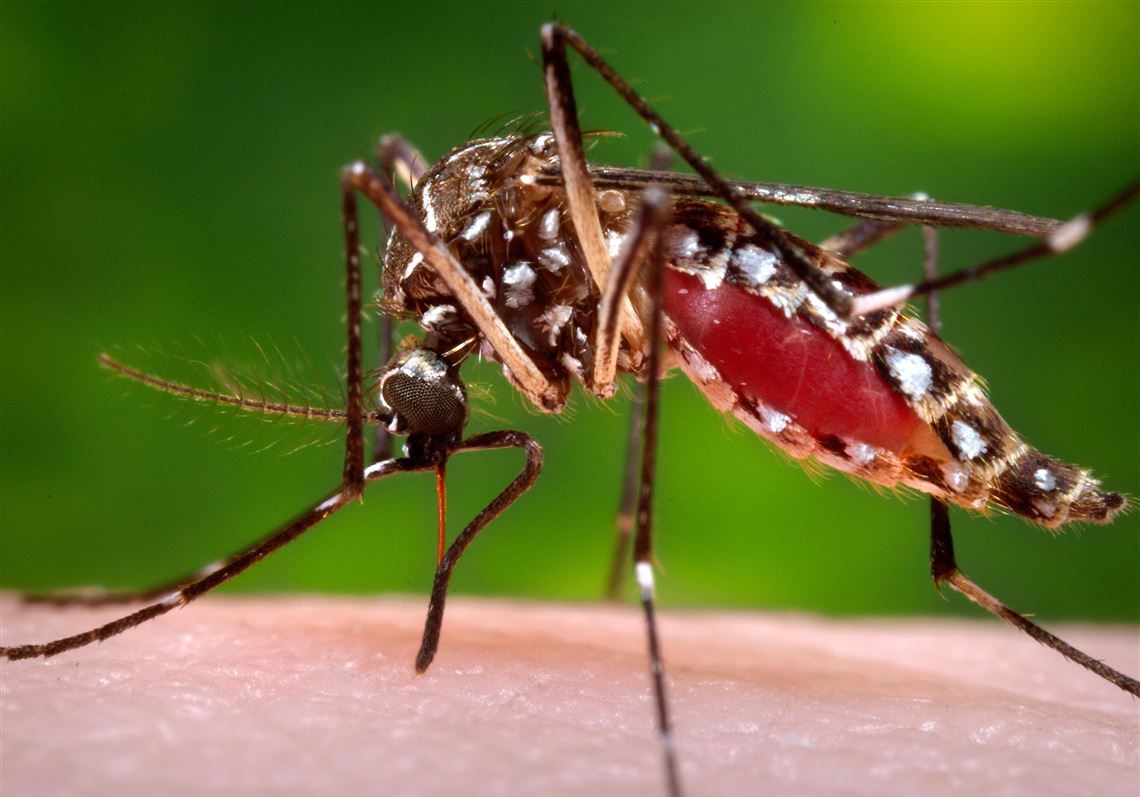Amid the growing surge of Zika research, the University of Pittsburgh School of Medicine has announced early success with two experimental vaccines that prevented the pups of immunized female mice from becoming infected with the virus.
Both vaccines, with one more effective than the other, succeeded in producing an immune response to the virus that was transferred from mother to her pups. That would represent an important goal in a human vaccine, given the severe neurological birth defects including microcephaly (an abnormally small head) and Guillan-Barre syndrome that the viral infection can cause.
“We’ve not only developed a promising vaccine candidate to move toward larger pre-clinical and, eventually, human clinical trials, but also a delivery format that would be inexpensive to produce and distribute to hundreds of thousands of people,” said Andrea Gambotto, an associate professor of surgery at the medical school who was senior author of the study, published online Monday in the EBioMedicine journal.
Congress recently allocated $1.1 billion for Zika research, money that Pitt researchers hope to tap to advance their vaccines to human clinical trials, potentially within a year, Dr. Gambotto said.
The Pitt focus is creating a vaccine given to the mother that protects the fetus and newborn against birth defects. So far, so good.
“Pups born to mice immunized with [the one Pitt vaccine] were all protected against lethal challenge infection without weight loss or neurological signs,” while 50 percent of the pups born to dams immunized with the second Pitt virus were protected, the study says.
One vaccine involved a standard injection. The other used crystals affixed to a patch similar to a Band-Aid to keep them in contact with the skin until they dissolved.
The vaccines generate an immune response against an antigen — a protein — on the outer shell of the virus. The Pitt study describes the immunization as “a promising candidate vaccine” for the prevention of Zika virus disease.
Bites from mosquitoes of the Aedes species represent the key method of viral transmission, with sexual transmission also possible. Various South American, Central American and Caribbean nations are experiencing epidemic levels of infection, while Florida has reported Zika infections contracted from local mosquitoes. The virus already has spread to 50 nations, with 6,400 cases in the United States and its territories, the National institute of Health reports.
The National Institute of Allergy and Infectious Diseases currently is working on five Zika vaccines, with the Aug. 2 launch of a human clinical trial.
Once a vaccine is developed, it typically is tested in mice then monkeys. If successful, the next step is three phases of human clinical trials to determine safety and effectiveness before it goes before the U.S. Food and Drug Administration for approval. Even if the institute’s vaccine proceeds on the current fast track, its effectiveness on humans won’t be clear until early to mid-2018, said institute director Anthony S. Fauci. Consider, however, that vaccines typically take seven to 10 years to be developed and approved.
Developing a Zika virus poses no serious difficulties in vaccine science, given that similar flavivirus vaccines already have been developed for yellow fever and several types of encephalitis.
Besides the five NIH vaccines, pharmaceutical companies, universities and others also have reported their development of vaccines.
“The more shots on goal you have, the better the chance of getting a vaccine,” Dr. Fauci said. “If history holds true, there should be an effective vaccine against Zika.”
David Templeton: dtempleton@post-gazette.com or 412-263-1578.
First Published: October 3, 2016, 6:00 p.m.
Updated: October 4, 2016, 4:07 a.m.


















